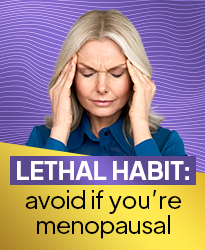In today’s hyper-connected world, electromagnetic fields (EMFs) are everywhere, from the devices we hold in our hands to the Wi-Fi routers we can’t live without. But have you ever stopped to wonder how EMF exposure affects sleep and health? Spoiler alert: it’s not great. The invisible energy radiating from these devices can disrupt our bodies in ways we’re only beginning to understand. Let’s dive deep into the science and strategies behind this pressing issue.
What Is EMF and Where Does It Come From?
EMF stands for electromagnetic fields, a form of energy that’s emitted by electrical devices. They come in two main flavors: low-frequency EMFs, like those from power lines and household appliances, and high-frequency EMFs, such as Wi-Fi signals, cell phones, and microwaves. While low-frequency EMFs are generally considered less harmful, high-frequency EMFs have raised concerns due to their proximity to our bodies and their potential to disrupt biological processes.
Think of it this way: every time you stream your favorite show or scroll through social media, you’re bathing in a soup of electromagnetic radiation. Not quite the relaxing bath you imagined, right?
The Science Behind How EMF Exposure Affects Sleep and Health
So, how exactly does EMF exposure affect sleep and health? Research suggests that EMFs can interfere with the body’s production of melatonin, a hormone crucial for regulating sleep. Melatonin doesn’t just make you sleepy; it’s also a powerful antioxidant that helps repair the body overnight. When EMF exposure suppresses melatonin, you’re left feeling tired, groggy, and less able to fend off stress or illness.
Additionally, EMFs may increase oxidative stress and inflammation, which are linked to chronic conditions like heart disease and even cancer. Sleep and health go hand in hand, and EMFs are gate-crashing the party.
Join Our Mailing List
Register now to get our hints and tips newsletter directly to your inbox
Symptoms of EMF Exposure You Shouldn’t Ignore
Not feeling quite like yourself? EMF exposure might be the culprit. Here are some common symptoms:
- Sleep disturbances: Trouble falling or staying asleep.
- Fatigue: Feeling drained even after a full night’s rest.
- Brain fog: Difficulty focusing or remembering things.
- Headaches: Especially after prolonged screen time.
- Tingling sensations: Unusual feelings in your hands or other areas when using devices.
If any of these sound familiar, it might be time to evaluate how EMF exposure affects your daily life.
The Connection Between EMF Exposure and Sleep Disturbances
Ever wonder why you can’t sleep after binge-watching your favorite series? EMFs could be to blame. The blue light from screens is only part of the problem; the electromagnetic radiation emitted by devices can disrupt your circadian rhythm. This internal clock relies on natural light cues to tell your body when it’s time to sleep and wake up. EMF exposure scrambles these signals, leaving you tossing and turning all night.
Studies have also shown that exposure to EMFs at night reduces the time spent in deep sleep, the most restorative phase. No deep sleep means no waking up refreshed. Instead, you’re left feeling like a zombie—and not the cool, TV kind.
Long-Term Health Risks of EMF Exposure
Let’s talk long-term. Chronic exposure to EMFs has been linked to:
- Increased stress levels: EMFs can overactivate the nervous system, keeping your body in fight-or-flight mode.
- Weakened immune response: Less melatonin equals fewer defenses against cellular damage.
- Potential cancer risk: While the jury’s still out, some studies suggest a possible link between high EMF exposure and certain types of cancer.
Ignoring how EMF exposure affects sleep and health is like ignoring a slow leak in a boat. Eventually, you’re going to sink.
How to Identify High EMF Zones in Your Home
Start by identifying EMF hotspots. Invest in an EMF meter—yes, they exist—to measure radiation levels around your home. Common culprits include:
- Wi-Fi routers
- Smart TVs
- Baby monitors
- Microwaves
- Power strips and outlets
Pro tip: Your bedroom should be a low-EMF zone to ensure restful sleep. More on how to achieve that in a bit.
Practical Tips to Reduce EMF Exposure for Better Sleep and Health
Reducing EMF exposure doesn’t require living off-grid. Here are some easy steps:
- Turn off Wi-Fi at night: Use a timer or switch to a wired connection.
- Keep devices out of the bedroom: No phones, tablets, or laptops near your bed.
- Invest in EMF-blocking gear: Look for phone cases, shields, and even bed canopies.
- Limit screen time before bed: Give your body a chance to wind down naturally.
These small changes can make a big difference in how EMF exposure affects sleep and health.
Does EMF Shielding Technology Work?
Not all EMF-blocking products are created equal. While some, like specialized phone cases and shielding fabrics, have proven effectiveness, others are more snake oil than science. Research before you buy, and remember that no product can completely eliminate EMFs. The goal is to minimize exposure, not achieve a radiation-free existence (which, let’s face it, is impossible unless you’re living on the Moon).
Lifestyle Changes to Minimize EMF Impact on Sleep and Health
In addition to reducing device usage, consider adopting these lifestyle habits:
- Grounding: Walking barefoot on grass can neutralize free radicals caused by EMFs.
- Mindful tech use: Take regular breaks from screens and prioritize face-to-face interactions.
- EMF-free zones: Create spaces in your home where electronics are off-limits.
These changes not only improve your sleep but also benefit your overall well-being.
Myth vs. Fact: Busting Common Misconceptions About EMF Exposure
- Myth: Only high-frequency EMFs are harmful.
- Fact: Both low and high-frequency EMFs can impact health over time.
- Myth: EMFs don’t affect children differently.
- Fact: Children’s thinner skulls and developing brains make them more susceptible.
- Myth: EMFs are harmless if you don’t feel any symptoms.
- Fact: Health effects can accumulate silently over years.
EMF Exposure and Children’s Health: A Growing Concern
Children are especially vulnerable to EMF exposure. Their developing brains and thinner skulls absorb radiation more easily, potentially leading to cognitive and behavioral issues. Limit their screen time, encourage wired connections, and avoid placing devices like tablets directly on their laps.
Can Reducing EMF Improve Your Sleep and Health? Real Stories and Studies
Many people report significant improvements in sleep and energy levels after reducing EMF exposure. Studies have also found that shielding yourself from EMFs can restore melatonin production and enhance overall health. Try it for yourself and see if you notice the difference.
In conclusion, EMFs are an unavoidable part of modern life, but understanding how EMF exposure affects sleep and health can empower you to make better choices. By reducing exposure, creating low-EMF zones, and adopting healthier tech habits, you can protect your sleep, your health, and your sanity—even in our Wi-Fi-saturated world.




